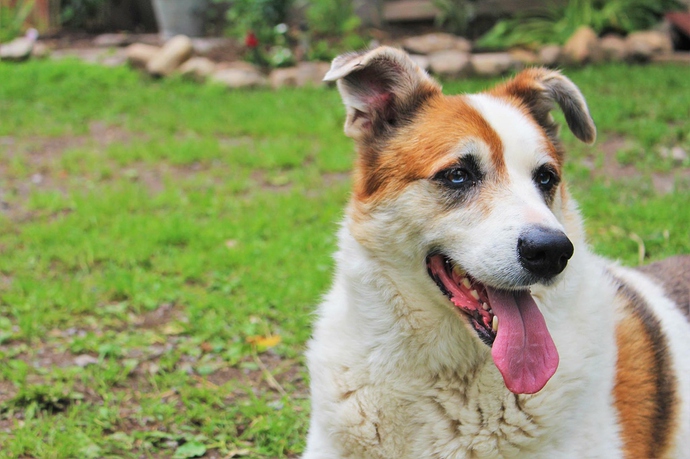My dog developed idiopathic seizure disorder Seizure of unknown origin/epilepsy) later in life. I did medicate at vet suggestion once they happened once/month which didnt take very long. Her first one was triggered by extreme excitement. She was already about 11 or 12 yo and I had no idea what was happening. I had taken the dogs on a bit of a wilderness vacation, rented a cabin on the lake, private 5 acres woods etc. Her and my younger dog were having a blast ripping up and down the bluff from the cabin to the lake and back when suddenly she dropped out of view. Other dog still bouncing but no sign of her so I went up the bluff to check it out and found her collapsed and foaming at the mouth. Jesus! I was like omg pupper what’s wrong, and she GROWLED at me and looked like she’d never seen me before. I ran and put other dog in the cabin and went back. She was fleeing down the trail, I pursued calling her name, baby girl baby girl (not her name, but you get it). She fled like I was a monster, what else could I do but pursue slowly, this was miles of woods and wildnerness. She fled to the dock and looked like she was going to jump off. I sat on the ground, I had no idea what to do and I was alone. She jumped in the lake and swam straight away from shore. Fuck my life I emptied my pockets, took off my shoes and jumped in after her. I swam I don’t know how far out and thought this is how people drown. I took a lifesaving class in high school that was useful here, finally caught up to her in the middle of the lake, grabbed her, I knew she might bite me but dear god what else are you going to do? Watch your dog drown?? Thankfully as I was grabbing her in the water I saw her eyes change and she suddenly knew who I was again and I turned us both over on our backs and backstroked us back to shore.
I carried her to the cabin and she NEVER EVER went off leash again the rest of her life. She didn’t have another seizure for 6mo after that and it wasn’t until she had another that I truly grasped what happened that day at the lake. But then they started coming frequently and multiple meds and increased doses and it was the beginning of the end. We did end up controlling the seizures ok but her live failed in the end and she went jaundice in about 5 days, no more eating, and that was that.
She would seize at night, about 30 min before bed time. They got worse and lasted longer as it progressed and her recovery took longer. She wouldn’t know who I was immediately after and for several minutes. My other dog was aggressive towards her during a seizure, that is a concern to watch for.
An ice back applied to the lower back during a seizure can help stop the seizure or shorten its duration and speed recovery. I learned it on the internet and tried it and it does work. I would always sit with her during a seizure.
Good luck and I’m sorry.

